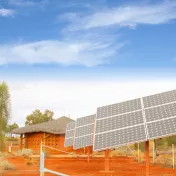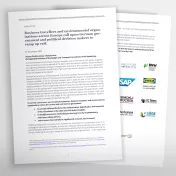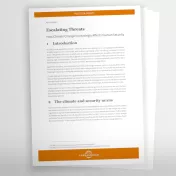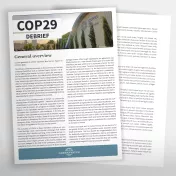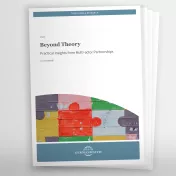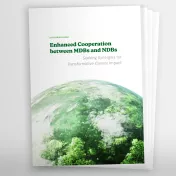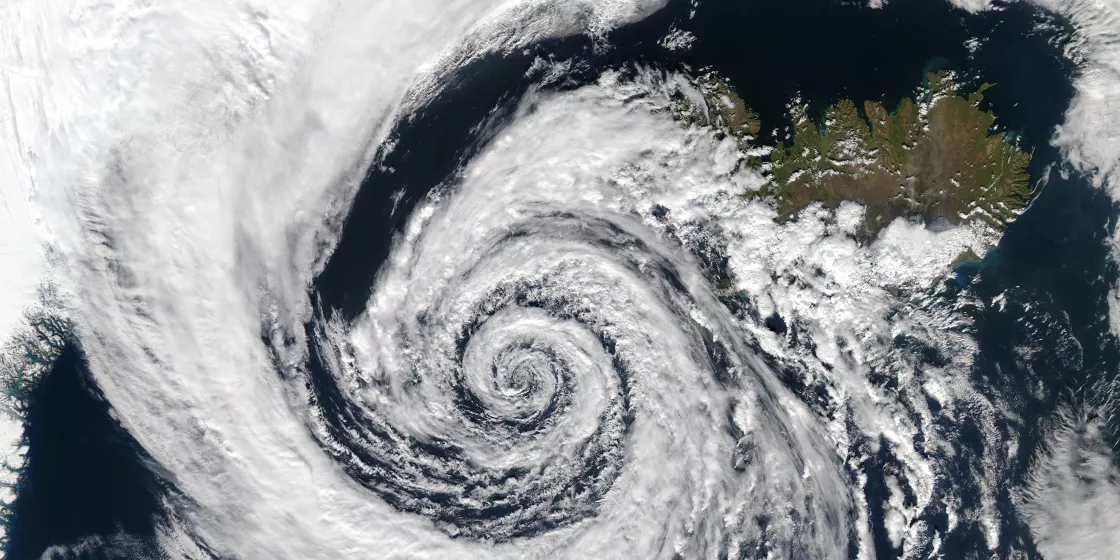
© Jacques Descloitres, MODIS Rapid Response Team, NASA/GSFC
A satellite image from 4 September 2003 shows a low-pressure system off the southwestern coast of Iceland. Due to the Coriolis force, air flows counterclockwise toward the centre, while the clouds form a swirling pattern over the Denmark Strait. Image by NASA.
Climate
We are facing two major climate challenges. First, to avoid the unmanageable impacts of climate change, through climate action. Secondly, to cope with unavoidable impacts of climate change, through adaptation. Germanwatch is working on equitable and efficient solutions to both.







